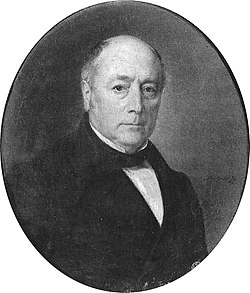
Bern, or Berne, is the de facto capital of Switzerland, referred to as the "federal city". With a population of about 133,000, Bern is the fifth-most populous city in Switzerland, behind Zürich, Geneva, Basel and Lausanne. The Bern agglomeration, which includes 36 municipalities, had a population of 406,900 in 2014. The metropolitan area had a population of 660,000 in 2000.

Jonas Furrer was a Swiss lawyer and politician who served as a member of the Federal Council, from 1848 to 1861, and as the first president of the Swiss Confederation from 1848 to 1849, and again in 1852, 1855 and 1858. He was one of the leading figures in the foundation of Switzerland as a federal state. He was a member of the Radical Party.
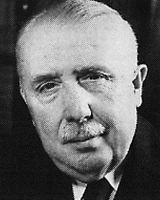
Adolf Eduard von Steiger was a Swiss lawyer and politician who served as the 51st President of the Swiss Confederation twice in 1945 and 1951 for Party of Farmers, Traders and Independents. Von Steiger served as a Member of the Federal Council (Switzerland) from 1941 to 1951 and previously on the Grand Council of Bern from 1914 to 1939.

Friedrich Emil Welti known as Emil Welti was a Swiss politician, lawyer and judge. From 1856 to 1866, he was a member of the government of the canton of Aargau and, beginning in 1857, the Council of States. In 1867, Welti was elected to the Bundesrat as a representative of the liberal-radical faction.

Ludwig I or Louis I was King of Bavaria from 1825 until the 1848 revolutions in the German states. When he was crown prince, he was involved in the Napoleonic Wars. As king, he encouraged Bavaria's industrialization, initiating the Ludwig Canal between the rivers Main and the Danube. In 1835, the first German railway was constructed in his domain, between the cities of Fürth and Nuremberg, with his Bavaria joining the Zollverein economic union in 1834. After the July Revolution of 1830 in France, Ludwig's previous liberal policy became increasingly repressive; in 1844, Ludwig was confronted during the Beer riots in Bavaria. During the revolutions of 1848 the king faced increasing protests and demonstrations by students and the middle classes. On 20 March 1848, he abdicated in favour of his eldest son, Maximilian.

Otto was King of Greece from the establishment of the Kingdom of Greece on 27 May 1832, under the Convention of London, until he was deposed in October 1862.
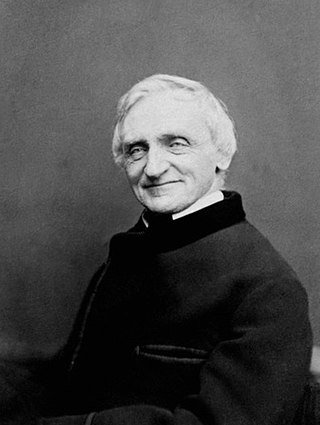
John was King of Saxony from 9 August 1854 until his death in 1873. He was a member of the House of Wettin. During his reign, Saxony became a part of the German Empire.

The Order of the Black Eagle was the highest order of chivalry in the Kingdom of Prussia. The order was founded on 17 January 1701 by Elector Friedrich III of Brandenburg. In his Dutch exile after World War I, deposed Emperor Wilhelm II continued to award the order to his family. He made his second wife, Princess Hermine Reuss of Greiz, a Lady in the Order of the Black Eagle.
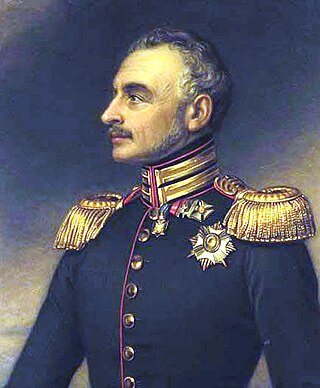
Joseph was Duke of Saxe-Altenburg from 1834 to 1848.

Karl Anton, Prince of Hohenzollern-Sigmaringen was the last prince of Hohenzollern-Sigmaringen before the territory was annexed by the Kingdom of Prussia in 1849. Afterwards he continued to be titular prince of his house and, with the death of the last prince of Hohenzollern-Hechingen in 1869, of the entire House of Hohenzollern. He served as Minister President of Prussia from 1858 to 1862, the only Hohenzollern prince to hold the post. His second son, Karl, became king of Romania. The offer of the throne of Spain to his eldest son, Leopold, was one of the causes of the Franco-Prussian War, which led to the unification of Germany and the creation of the German Empire.

The Order of Saint Stephen is an order of chivalry founded in 1764 by Maria Theresa. In 1938, Miklós Horthy took the rights and activities of Grand Master as Regent of Hungary. The name of the Order changed to the Royal Hungarian Order of Saint Stephen. The Order was terminated at the time of the proclamation of the Second Hungarian Republic in 1946. It was recreated in 2011 as the Hungarian Order of Saint Stephen, and to this day remains the highest order in Hungary.

Amalie Auguste of Bavaria was a Bavarian princess by birth and Queen of Saxony by marriage to King John of Saxony.

Louis Kraft Ernest, Prince of Oettingen-Wallerstein was a Bavarian statesman and German prince of the House of Oettingen-Wallerstein. He succeeded his father as ruling Prince of Wallerstein in 1802 but lost his sovereignty in 1806 due to Mediatisation.

The Erlach family was a Bernese patrician family. They first became citizens of Bern around 1300. During the 17th and 18th centuries they were one of the leading families in Bern. For centuries the family served as senior military commanders in both Bern and in foreign armies. They were mayors of Bern and ruled over many other towns and cities in western Switzerland. Several family members received the upper nobility title "Reichsgraf".
Events in the year 1913 in Germany.

The Grand Duchy of Baden was a state in south-west Germany on the east bank of the Rhine. It originally existed as a sovereign state from 1806 to 1871 and later as part of the German Empire until 1918.
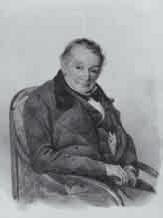
Karl Zeerleder was a Swiss politician who served as the first mayor of Bern.
Christoph Albert Kurz was a Swiss politician who served as the third mayor of Bern.
